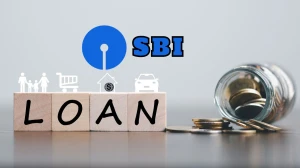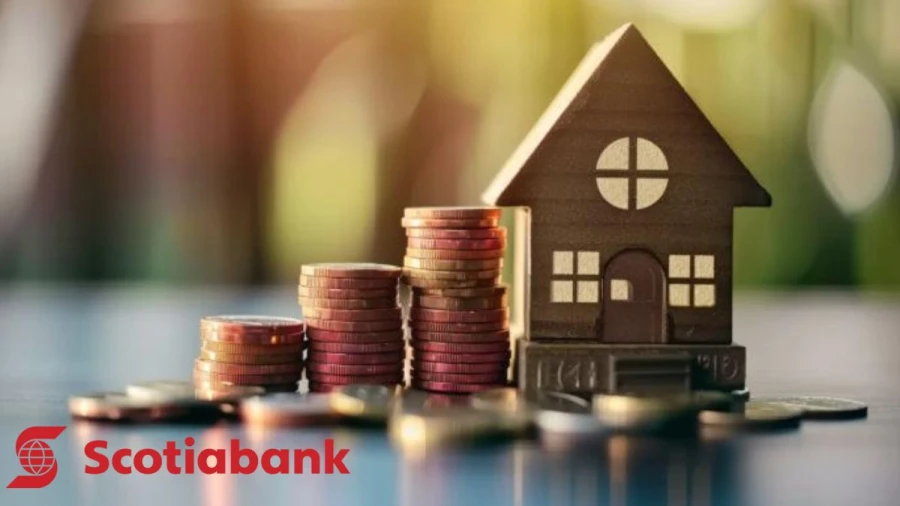
Scotiabank Mortgage Rates, How Are Mortgage Rates Calculated?
Scotiabank Mortgage Rates have been released recently for Variable Rate Mortgages, Closed-term Fixed Mortgage Rates, and Short-Term Fixed-Rate Mortgage. Each of them offers different rates, know more about it here.
by Damodharan N
Updated Apr 09, 2024
On This Page
Scotiabank Mortgage Rates
Scotiabank recently released the various types of mortgage rates that it offers, like Variable Rate Mortgages, Closed-Term Fixed Mortgage Rates, and Short-Term Fixed Rate Mortgages Let's look at them and their posted rates.
Variable Rate Mortgage
The variable rate mortgage is calculated by having a variable interest rate. This type of mortgage is financially unsuitable as the interest rate may change during the term period and people need to pay variable interest payments for each month, which may rise or go down.
Mortgage Type |
Term |
Posted Rate |
|
Scotia Ultimate Variable Rate Mortgage - 3-Year Closed |
3-Year Closed Term |
8.600% |
|
Scotia Flex Value Mortgage - Closed 5-Year Term |
5 Year Closed Term |
7.650% |
|
Scotia Flex Value Mortgage - Open 5-Year Term |
5 Year Open Term |
10.400% |
Closed-term Fixed Mortgage Rate
The Closed-term fixed mortgage is calculated by setting the interest rate for a specific time scale or term, like 1-year or 2-year, and its maximum term limit is set for 10 years. This type of mortgage offers stability over a long period of time as the rates are fixed for a set period.
Term |
Rate |
|
1 year |
7.840% |
|
2 years |
7.390% |
|
3 years |
6.940% |
|
4 years |
6.740% |
|
5 years |
6.790% |
|
7 years |
7.000% |
|
10 years |
7.490% |
Short-Term Fixed-Rate Mortgage
This type of mortgage is for situations where interest remains constant for a brief period, like 6 months to 1 year. In some banks, this period may differ; check with them. This is also risky because, after a brief period, the rate will increase, which is not good for long-term payment stability.
Term |
Rate |
|
Open Mortgage - 6 month |
9.750% |
|
Open Mortgage - 1 year |
9.750% |
|
Flexible/Closed Mortgage - 6 month |
7.850% |
What is the Mortgage Rate?
The mortgage rate is fixed by the lenders for the borrowers and is calculated based on the home loan interest rate. It is affected by factors like economic conditions, the lender of your choice, the interest rate of the Fed, the term and type of mortgage, your individual credit score, and whether you are self-employed, among other factors.
This rate affects the monthly payments of homebuyers based on the loan. To understand how this mortgage rate will go either up or down, homebuyers need to look for two things. One is the prime rate, and the other is the 10-year Treasury bond yield.
The former deals with the interest rate that banks charge the most creditworthy customers, and the latter deals with the government raising money for its spending from the lenders.
Types of Mortgage Rates
The types of mortgage rates are based on lenders' options and individual credit scores, but most lenders offer four broad categories: fixed-rate mortgages, adjusted-rate mortgages, interest-rate mortgages, and jumbo-rate mortgages. Each of them is suitable for the specific needs of the individual.
-
Fixed-rate mortgages:
This type of mortgage is suitable for people who want stability and predictability in the loan projection, as it offers both fixed interest on the loan and a monthly repayment amount.
In this loan type, interest will be paid first and the principal loan amount will be paid by the end of the term. This is most suitable for people who pay a 20% or more downpayment when getting the loan and pay interest and loan principal over long-term periods like 10, 20, or 30-year terms.
-
Adjusted-rate mortgages:
The interest rate will change based on the variable conditions that will be agreed upon in the loan’s terms. During the initial period, interest rates will be lower and are called teaser rates; they will be gradually increased.
The interest rate fluctuation will be based on the short-term Treasury bills, so look for them to get a sense of how interest may work for you. This is suitable for people who have more than enough steady income and want to complete the loan as fast as possible.
-
Interest-rate mortgages:
This loan is suitable for high-income and irregular-income groups, where people will be allowed to pay interest only during the initial months, and later on, interest and principal should be paid, so monthly payments will be higher after a few initial months.
This is for people who want to sell homes quickly after the appreciation value increases and for people who are not sure of their steady income source. In this loan, there is a greater chance of losing your home due to non-payment of loan interest, and a possible foreclosure initiative will be taken against you.
-
Jumbo-rate mortgages:
Jumbo-rate mortgages are for people who want to buy luxury homes. In this loan will exceed the conforming loan limit set by Fannie Mae, Freddie Mac, and the Federal Housing Agency, their regulators. This is only for wealthy people with better credit scores. This loan is also available at variable and fixed income rates for people.
How are Mortgage Rates Calculated?
The mortgage rates are calculated based on the principal loan amount, and the rate may vary depending on various factors like the length of the loan, type of loan, credit score, inflation, geographic location, housing market, price of the home, and federal policy.
Each of them plays a key role in fixing the rate for your home loan mortgages, so to predict the factors in a reliable manner, divide them based on one that you can control and another that will be controlled by the government and market forces.
The things that you can control are the loan term, type of loan, geographic location, credit score, and price of the home based on the income source that you can manage. Other things that are under government and market control are the housing market, inflation, and federal policy.
So knowing where to improve on your own will help you get better mortgage rates.
Benefits of Mortgage Rates
- The mortgage rate will help both borrowers and lenders know some sort of stability is involved as there is collateral available in the form of a home.
- This is helpful for people who do not have access to large amounts of capital but can repay the loan due to a steady flow of small income.
- This type of mortgage loan fulfills the aspiring needs of new homeowners and instills faith in the housing market, which will be inaccessible due to the large upfront cost involved.
- Mortgage rates offer flexibility and variability due to their terms and loan types, which is helpful for all sorts of income groups.
- Mortgage rates help people spend money on buying a home as an investment, as they have appreciation value depending on the geographic location.
Scotiabank Mortgage Rates - FAQs
1. What is the mortgage rate?
The mortgage rate is fixed by lenders for borrowers based on the loan’s interest rate.
2. What factors affect the mortgage rate?
Factors that affect the mortgage rate are the length of the loan, type of loan, credit score, inflation, geographic location, the housing market, the price of the home, and federal policy.
3. What are the types of mortgage loans?
The types of mortgage loans are fixed-rate mortgages, adjusted-rate mortgages, interest-rate mortgages, and jumbo-rate mortgages.
4. What is Scotiabank's closed-term fixed mortgage rate for the 10-year term?
Scotiabank's closed-term fixed mortgage rate for the 10-year term is 7.490%.
5. What are the benefits of mortgage rates?
Mortgage rates offer flexibility and variability due to their terms and loan types, which is helpful for all sorts of income groups.




